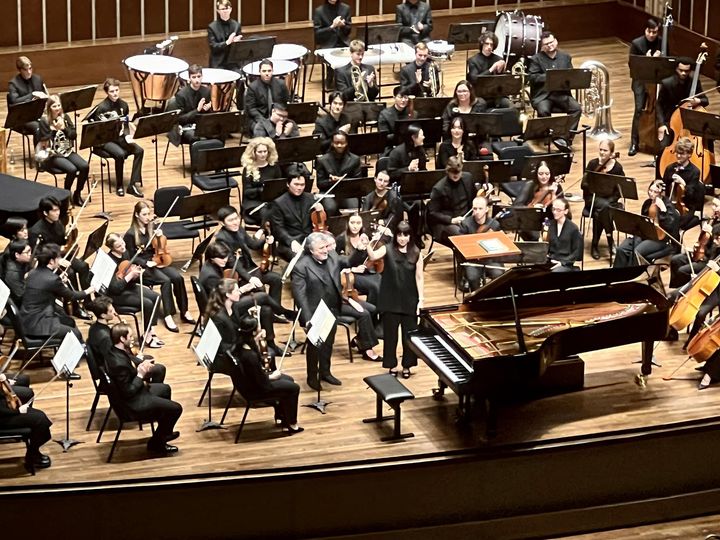US university ‘ignored music professor’s sex abuse’ for a decade
mainAn independent investigation into sexual misconduct by a music professor at the University of Connecticut claims that the college authorities refused to take action on the accusations for more than 10 years.
Professor Robert Miller, 66, director of the music school, has been accused of misconduct with students; he was suspended from the university in June, but has not been charged with any crime. The dean of the music department, David Woods, is under fire for failing to take action sooner. He has been demoted from the post of dean, but continues to draw a $238,000 salary. Both men were told on Thursday that they face dismissal.






These issues involving UConn were covered in an article by Colleen Flaherty that appeared last July in “Inside Higher Ed.” After discussing in some detail similar problems at several other schools, she examines the idea that sexual misconduct might be a particular problem for music schools and possible reasons why. (She also refers to an excellent article by Robert Fitzpatrick, former dean of the Curtis Institute, that appeared on Slipped Disk a few weeks earlier on the same topic.)
The article also includes interview comments from Daniel Swinton, senior executive vice president at the NCHERM Group, a law and consulting firm that advises schools and colleges on safer schools and campuses. Swinton outlines some of the best ways for schools to deal with these problems. The article is here:
http://www.insidehighered.com/news/2013/07/30/could-music-students-be-more-risk-sexual-misconduct-professors
It is interesting that in recent years the U.S. Department of Education’s Office for Civil Rights has begun using Title IX to increase the protection of students from sexual assault. Title IX of the Education Amendments of 1972 prohibits gender discrimination. After numerous student complaints at several well-known universities — including the University of Montana, Yale, Swarthmore, North Carolina at Chapel Hill, California at Berkeley, Occidental, Dartmouth, and the University of Southern California — the OCR conducted investigations to determine whether these schools violated Title IX by mishandling complaints of sexual assault.
Last July, students rallied outside the Education Department in Washington to demand firmer action by the OCR for adherence to protections from sexual assault under Title IX. They also delivered a petition with the same demands that included over 159,000 signatures.
It’s interesting that Title IX, which was designed to protect students from gender discrimination, has turned out to also be an excellent legal tool for protecting students from sexual exploitation and assault. Perhaps positive unintended effects of a good law.